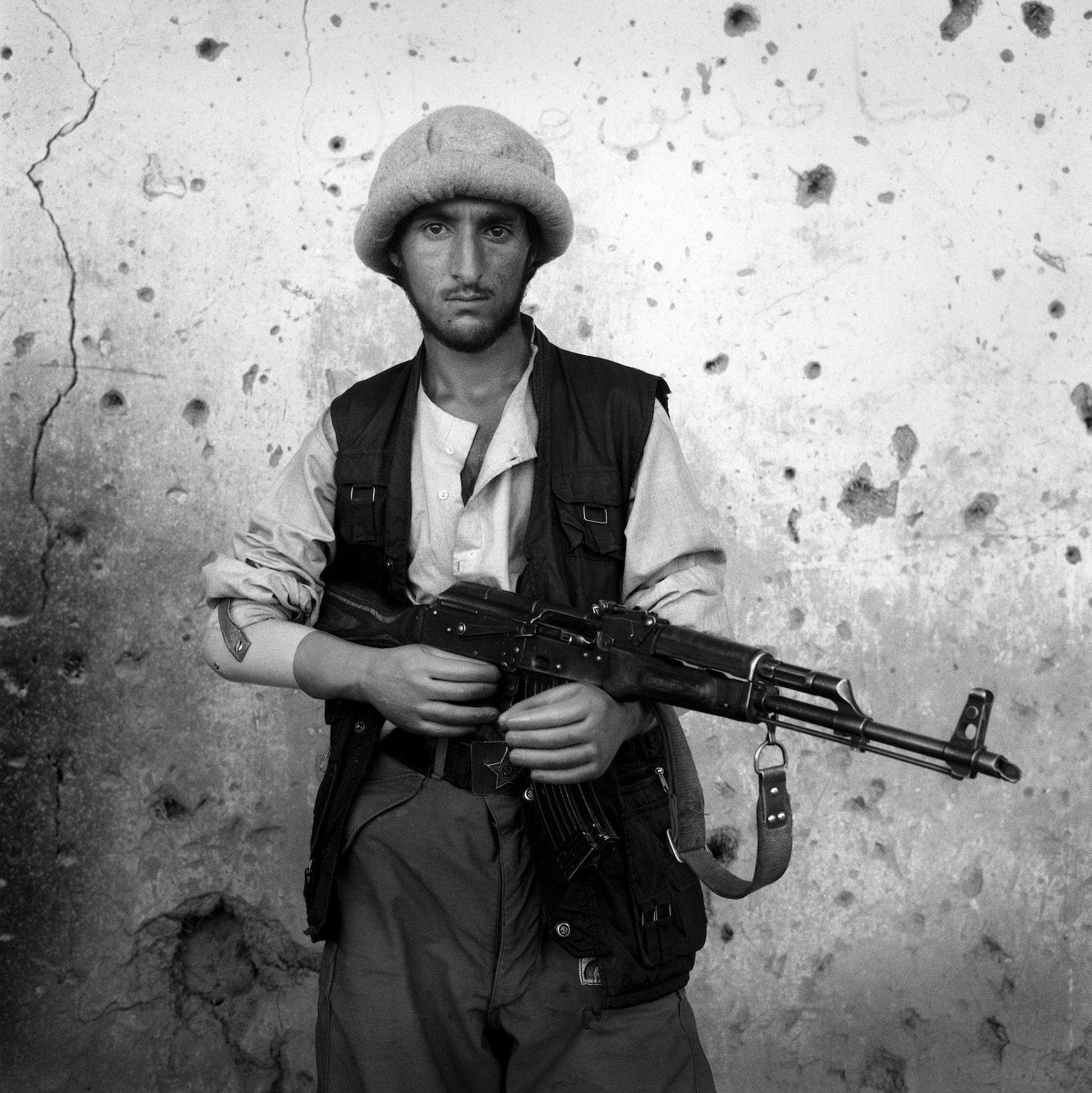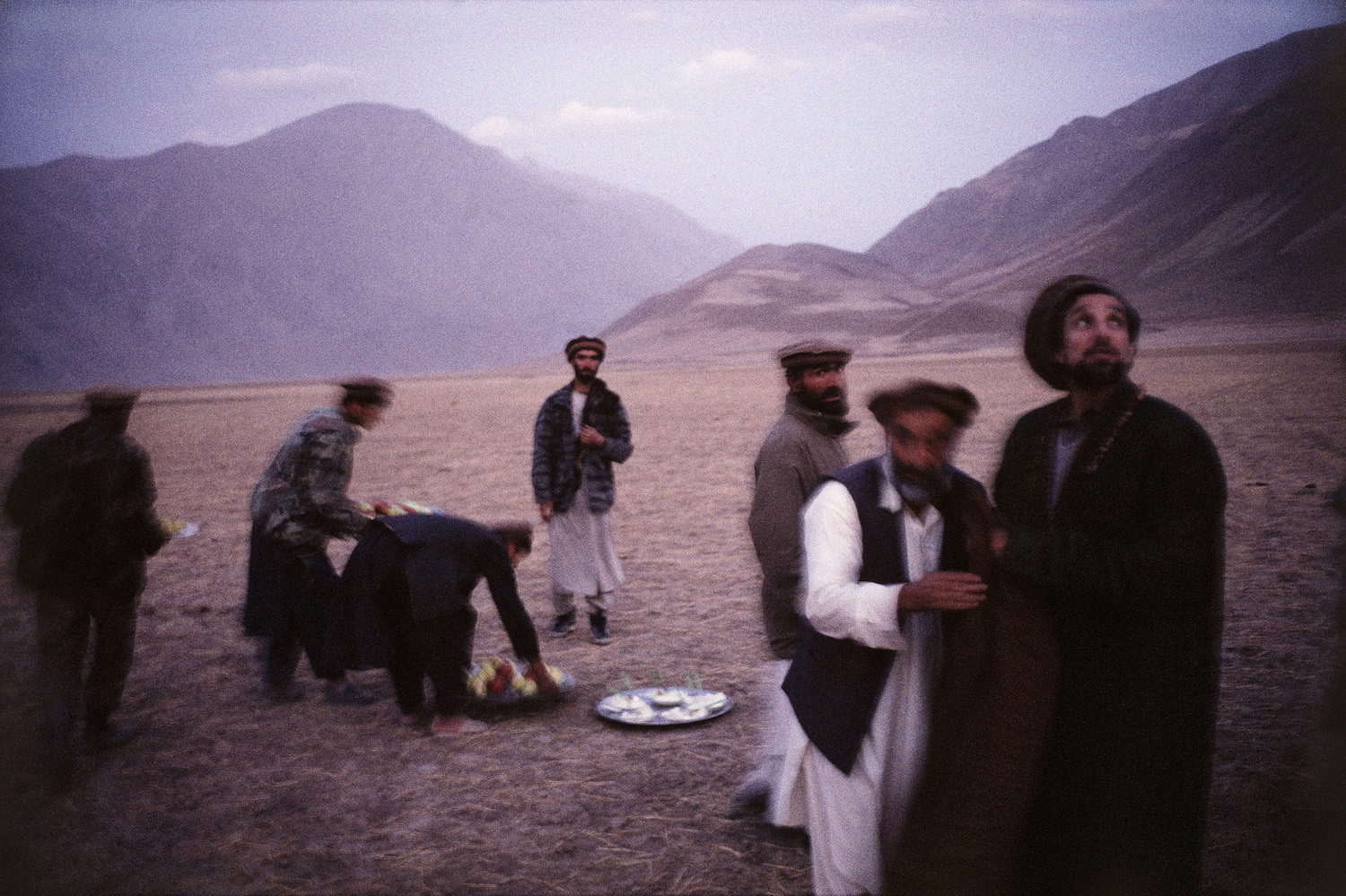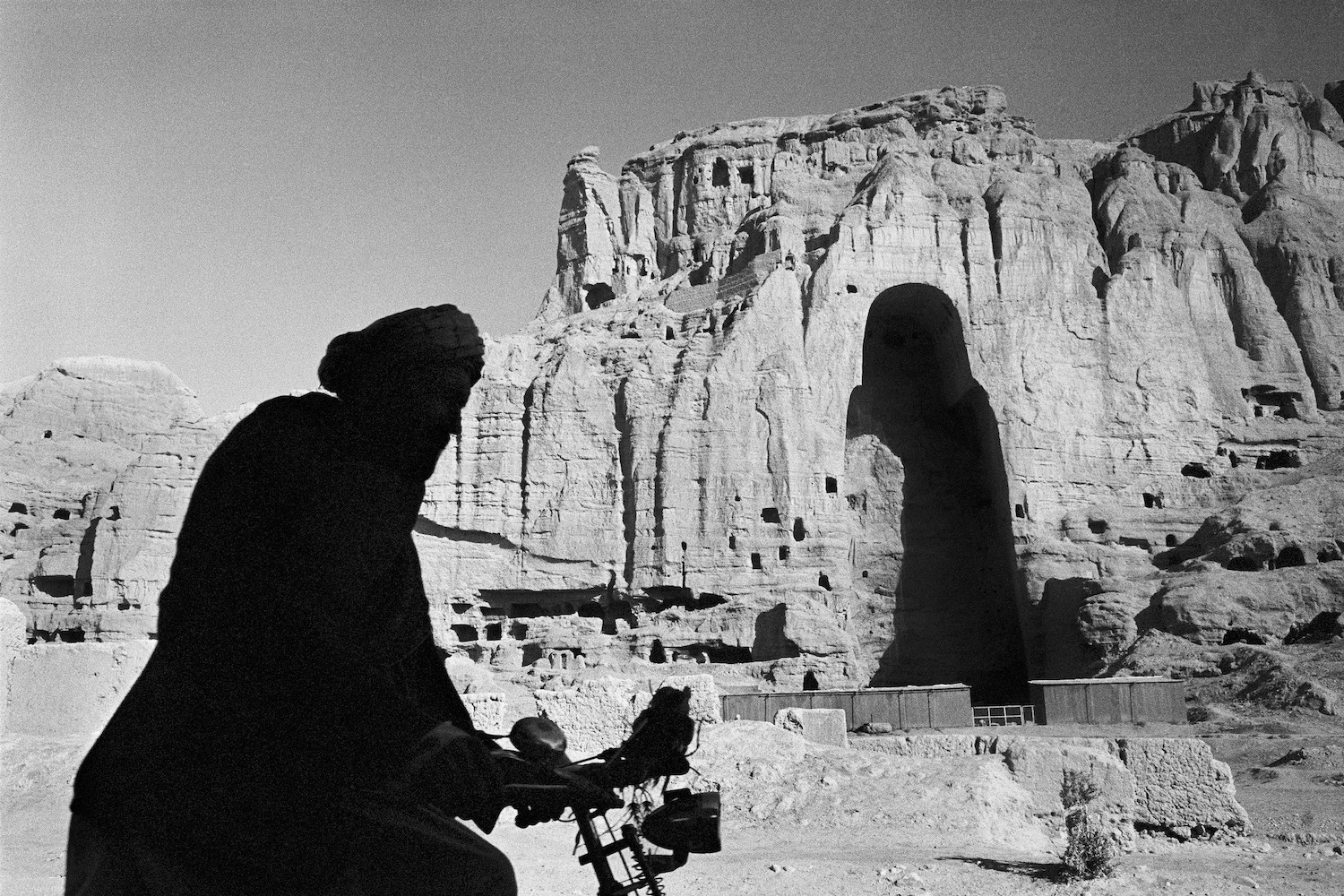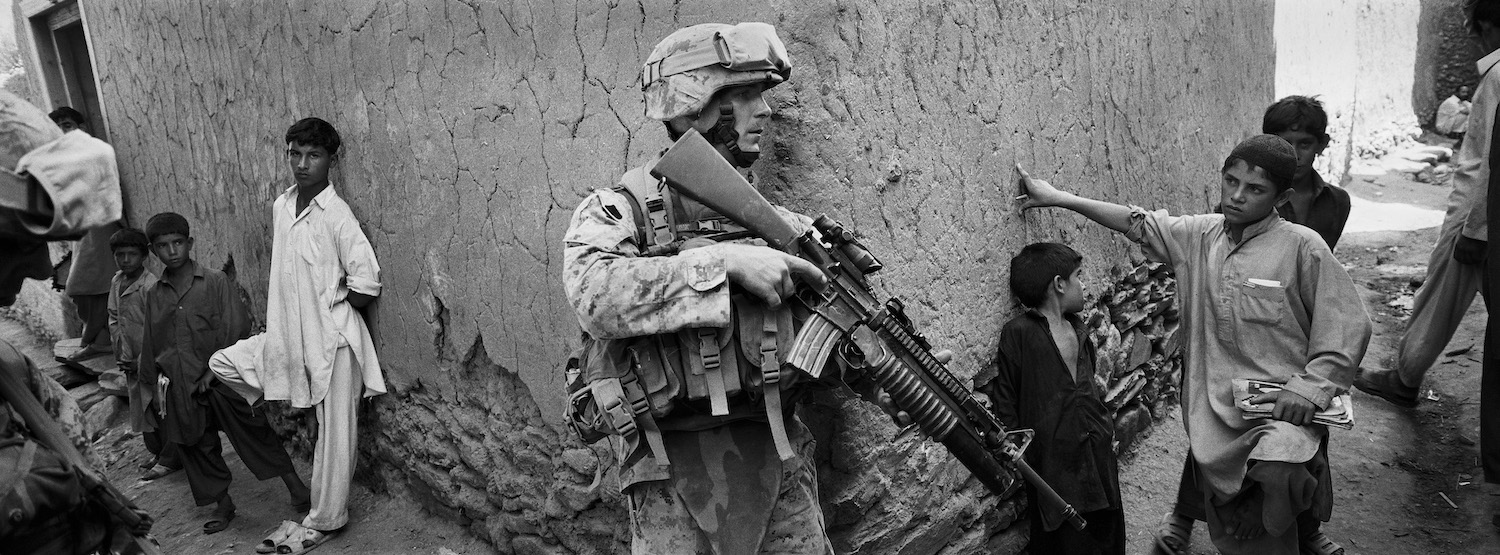Dupont has spent decades reporting from Afghanistan. Here, he discusses his work in the region, and what the future might hold as US and NATO forces withdraw from the country
Ahmad Shah Massoud gazes upwards towards a darkening sky in an orchard outside the town of Faizabad, north Afghanistan. Mountains loom in the distance as the legendary commander, clothed in dark robes and surrounded by his loyal cabal, looks to the heavens. To a passive observer it isn’t clear whether he is searching for an enemy helicopter, or some form of divine intervention. Stephen Dupont, who took the photograph in 1998, thinks it’s the latter.
“By then Massoud was at his wits’ end with fighting the Taliban. He was literally just holding on to a sliver of his country,” says Dupont. “At that moment, after reciting his prayers, he looked up to the skies, and I just had this feeling. It was like he was almost asking for a holy incarnation of gods to save his people.”
Dupont was on assignment for the French newspaper Le Figaro, which was penning a profile on Massoud, also known as the “Lion of Panjshir”, for his bravery in battles against Soviet forces. Dupont was uncertain at the time why the commander seemed content spending weeks in the company of a photojournalist. His interpreter eventually told him why: “Massoud likes you because you don’t ask anything from him, and he doesn’t really see you.” As a photographer, “it was the ultimate compliment,” says Dupont.
It was one of countless assignments that drew the Australian photojournalist to Afghanistan, where he has covered conflicts from the civil war and the rise of the Taliban in the 1990s, to the launch of “Operation Enduring Freedom” in 2001, and the ongoing war on terrorism.
Dupont first visited the country in 1993. He was covering a raging civil war in Tajikistan that had driven hundreds of thousands of Tajik Muslims to cross the border in Afghanistan and seek refuge from a bloodthirsty Communist government. By then Dupont was no stranger to conflict – he had covered Vietnam’s withdrawal from Cambodia in 1989, and fighting in Sri Lanka – but the absurdity of people seeking asylum in a country enduring its own civil war was not lost on him.
“I felt I needed to find my own story and Afghanistan was a place that didn’t have coverage, ” he says. “The pain and suffering there was way worse than I could ever have imagined.”
After photographing the Tajiks, Dupont ventured to Kabul, where the NGO Doctors Without Borders were working in Jamhuriat hospital to save civilians wounded by shelling. “The whole building was shaking from the bombs. Doctors were trying to repair people, trying to save their lives and I’m photographing the chaos,” Dupont recalls. “They were desperate to save people, who were just coming in by the dozen.”
The experience made him question why certain conflicts get ample media coverage and others do not. It also ignited deep feelings of sympathy and respect for the Afghan people who have spent decades struggling to endure infighting and foreign invasion.
“When I go to war, I’m protesting. I’m not just going in without feelings or personal objections. I want to make a statement.”
Like his hero Don McCullin – a man he “blames” for inspiring him to venture to dangerous places – an abiding theme in Dupont’s portfolio is a focus on marginalised people and unique, fragile cultures caught up in the chaos of war and political oppression. His images of Afghanistan show a nation rich in spiritual tradition and intense beauty, whose civilians are often battling against the odds to stay alive.
“When I go to war, I’m protesting. I’m not just going in without feelings or personal objections,” he explains. “I want to make a statement, and I’m not talking about manipulation, I’m talking about honouring what’s happening, and that can be a force to be reckoned with. It can change things that are happening.”
Dupont’s work in Afghanistan has done just that: in 2005 while embedded with US Marines corps outside Kandahar, he photographed troops burning the bodies of Taliban insurgents. The act, which violated the Geneva Conventions and the teachings in the Quran, sparked headlines across the globe, prompting a drastic revision of US military operations. The division in question was withdrawn from the region.
That incident aside, having been stationed countless times with military personnel, Dupont sympathises heavily with soldiers deployed in conflict zones. In fact, speaking from his native Sydney, he expresses dismay at Joe Biden’s recent decision to withdraw troops from Afghanistan, with Nato forces also exiting the region. This mass exodus, he argues, will only increase the suffering of Afghan civilians, ensuring that an already fragile nation will likely endure years of oppressive Taliban rule.
In recent months the Taliban has been targeting civilians and security forces with increased intensity. More than 500 civilians have been killed by the extremist group in Afghanistan in the first three months of 2021, a 30 per cent rise from the previous year, according to the UN.
“If we’re gonna go there and fight for 20 years then why pull out suddenly, and let it all fall apart? I feel a bit down about it. Mostly I feel for the people of Afghanistan. I fell in love with the country because I felt for the people, and it breaks my heart to know that they’re going to be sacrificed, like lambs to the slaughter.”
As our interview draws to a close, I ask Dupont for his favourite anti-war photograph. It’s a black and white image from 2005 [above], taken during his time with the US marines in Kunar province. A young boy rests nonchalantly against a mud hut. He is staring intensely at an armed US marine, but he’s not intimidated. Instead there is an unmistakable look of fierce defiance in his eyes. “He’s not scared, he’s just fucking angry and he’s only about 12 years old,” Dupont says. “He’s saying: ‘Fuck you and your big military machine. This is our country. This is my village, this is my home.’”




